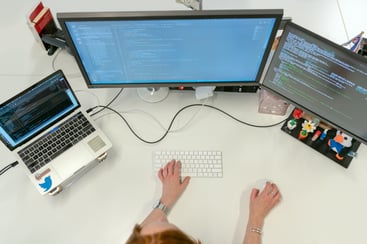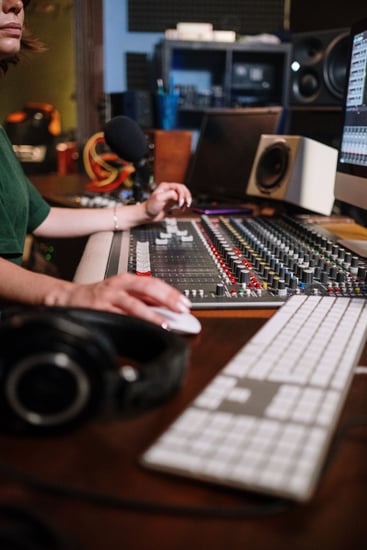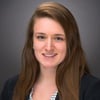In this post, we do a deep dive into how our Master’s degree works, the program format, student experience, and what to expect, as well as tuition and scholarships.
Our program works differently than other programs: most programs focus on lectures and exams. We focus on programming, building software, and developing on-the-job competencies.
Read on to discover how our program works.
Who Signs Up? How Do I Join?
The requirements for the Qwasar Master’s of Science in Computer Science program are very different from the traditional process, as we took a modern approach. There are no GRE requirements, letters of recommendation, Bachelor’s of Computer Science degree requirements, GPA requirements, etc. Our modern approach is based on workplace and competency for the 21st century. The requirements to join our program are a significant commitment, a Bachelor's degree in any subject, previous coding experience in at least 2 programming languages as well as a minimum understanding of the software development lifecycle, command line, data structures, and algorithms.
Our admissions process includes an application, coding test, personality/IQ test, take-home technical project test, and technical interview - an approach that is about skills and competencies not GPAs and GREs.
A master’s program is a personal choice that can be a motivation for a lot of different people. Some of the people who join our program are Computer Science graduates looking to advance their careers with a Master’s degree, possibly due to an employer requirement. Some are looking to career switch into tech, with a Bachelor’s in CS or non-CS degree, or even no Bachelor’s degree with other qualifications. Some students are returning to work after a career break. Others are lifelong learners just advancing their skillsets. And some are bootcamp grads looking for even more learning and coding opportunities. Whatever reason you may be joining our program, our community welcomes you.
Components of the Curriculum
The Master’s of Science in Computer Science program at Qwasar consists of a core curriculum followed by one of three specializations:
- Backend Software Engineering,
- AI/Machine Learning Engineering,
- and Full Stack Development.
The core curriculum starts with a 3-day intense hackathon, followed by data structures, algorithms, and data types. This provides a basic foundation on which students will build as they then move into their electives.
Our curriculum is focused on developing advanced programming skills by actually coding. You should expect to write about 100K lines of code. Your projects will undergo code review, helping you gain confidence that your code is good quality and up to best practices. Due to the online nature of our program, we have auto-grading and peer-reviewed assignments that are returned to students quicker than ever. Our system is seamless and easy to use thanks to multiple integrated elements that reflect what engineers or developers would use in the workplace.
Each specialization has its own curriculum, where you’ll focus on the languages, tools, and frameworks for that specialization that are commonly used in industry. Additionally, students will be required to choose subjects for both their thesis and capstone that align with their specialization. This means you can’t choose Full Stack as a specialization and write a thesis on Natural Language Processing, for example.
Also included in the program is significant career prep assignments, activities, and role plays. This will include: behavioral interviews, technical interviews, resume reviews, and more. For a full list of course offerings, check out our website.
Each course is 5 credits, with a capstone project worth 30 credits, and a thesis worth 5 credits.
The thesis requirement at Qwasar will be to write a professional paper including a slide deck and a live-recorded presentation on your topic. This topic can be anything that interests you, but it will be subject to Qwasar approval. There are some restrictions on how wide the subject area of your topic can be. This project is worth 5 credits out of the total 90 for the program. This project will be both peer-reviewed and instructor-reviewed for a final grade. An additional component of the thesis requirement is that you must review two academic articles. You will be required to do 2 per course and 2 as part of each academic project at Qwasar (Capstone, thesis, etc.) on topics such as algorithms, computer science, etc.
Similar to the thesis project, you will have some flexibility in choosing the topic of your capstone project, upon approval by Qwasar. The major requirement is that it is related to the industry that you want to go into. This project is a massive piece to put into your technical portfolio and will demonstrate why you are a perfect candidate for future jobs. You will have to build software and prove your abilities.The capstone project counts as 30 credits towards your overall 90 credits for the program. This project can be a huge lift in your overall performance. In that respect, it will last for 8-12 weeks depending on the program in order to create a quality, solid piece of work.
As students move to the second half of the curriculum, they will participate in our Engineering Labs. Qwasar's Engineering Labs are virtual, subject-focused labs where students work in pairs or groups to build a software project. Projects will last anywhere from 2 to 6 weeks depending on the size and difficulty of the project. These are great opportunities to put projects and the Labs on your resume, and to explore some of today's emerging technologies and subjects. Labs are also opportunities for students to pursue areas they're passionate about, or areas in which they lack experience and want to gain more exposure. The engineering labs currently offered are:
- Blockchain Lab
- Distributed Computing Lab
- Computer Vision Lab
- IoT Lab
- GreenTech Lab
Program Support and Career Advice
The success and progress of our students is at the forefront of our program design and why we have incorporated extensive program support and career advising. Our community is inclusive and full of students from diverse backgrounds, allowing for a variety of perspectives and experiences to guide projects and discussions.
In this program, you will be guided by Program Managers, similar to Instructors but focused more on coaching than teaching. They will facilitate group discussion and assist as needed with blockers. The point is that you learn how to become unstuck when you are stuck. You need to learn how to be resourceful, how to bring structure to a problem to solve it, and when and how to ask for help and feedback. This is VITAL to becoming a great software engineer or developer.
We also have Guardians of the Galaxy, senior students who are volunteer academic support members, who will lead small group sessions to assist on certain projects and topics that they have mastered.
Throughout the technical interview preparation program, learners will gain confidence through the completion of over 40 technical interviews. These are 45 minutes long and contain sample questions from industry to build effective communication skills. We use role play in technical interview practice where participants will both be the interviewee and the interviewer. This dual-sided perspective is unique to our program & helps build better interviewees
We review profiles to ensure students have accurately included all of their programming skills and explained their education/experience effectively, while staying ATS friendly. Students will also review each others’ resumes and profiles to share information or expertise that they have learned in their past experience, and gain valuable knowledge from each other. Students also review non-student resumes, playing the role of the recruiter to understand how recruiters interact with resumes. This is done in an effort to ensure great first impressions.
In our Behavioral Interview Preparation Program, students put their soft skills to work. In interviews these are often the non-technical questions that involve telling the interviewer about yourself and describing your strengths and weaknesses. This is a skill that we make sure our students practice in technical interview preparation. Presenting yourself and communicating about yourself is a skill that needs to be developed and worked on.
By the end of the master’s programs, you will have the confidence and skillset to apply to a wide range of jobs in tech. Some examples of jobs titles include:
- Software Developer
- Senior Software Engineer
- Lecturer - Computer Science
- Software Engineer Professor
- Software Engineering Manager
- AI/Machine Learning Engineer Manager
- Principal Product Manager - Artificial Intelligence
- Technical Product Manager, Machine Learning
- Machine learning Manager
- Full Stack Developer
- Lead Full Stack Developer
- Full Stack Developer Supervisor
- Full Stack Tech Lead
- Senior Full Stack Developer
Student Experience and Program Format
Our program format is 85% coding, 15% lectures, which is the modern approach to an MSCS. Our model is based on active learning, meaning you will spend WAY more time coding than sitting in lectures or presentations. Since there is no physical campus, you develop ways to virtually meet and interact with others in your cohort. You will be expected to participate and engage with the community. You are not just showing up to class, you are joining a lifestyle of developers committed to lifelong learning. It may seem difficult at first to connect and collaborate with others in a virtual classroom. We have implemented many opportunities that are simple and easy to chat with other students.
We use Discord to provide a user-friendly platform to message and call your peers. If you decide to work through problems together or partner up on a project, you can connect through this platform. Throughout weekly meetings, you will hear from students about progress updates and be able to start conversations based on their responses. Also, you will be grouped up with different people each week for coding collaboration sessions.
Our style of instruction is 100% learning by doing. Software engineers on the job are expected to solve problems, write code, collaborate, do code reviews, design architecture, debug, and ultimately deliver software that works. This is how our program is built, which is VERY different from a traditional program focused on lectures, grades, and passing.
We offer both a full-time intensive or a part-time program to complete the master's degree. Based on your weekly availability and commitment level, you should choose the program that best suits you. The remote nature of our programs allows for flexibility in completing your masters degree from anywhere.
- Full-time intensive: Our full-time intensive program is a 13-month program for full-time students. Courses and program meetings run Monday to Friday, 9am to 5pm, similar to a full-time job. Students should expect to work 40-50 hours per week at minimum.
- Part-time for the Working Professional: Our part-time program is great for working professionals, and is a 24-month program. Our part-time program is a great option for the working professional as meeting times are Tuesday evenings and Saturdays. Students should expect to work 15-20 hours per week, including program meetings.
The weekly meetings include daily stand up, weekly technical presentations, coding collaboration sessions, and virtual library time.
- Daily Standup:
Standups are held every morning to kick off the day with the cohort. This gives students an opportunity to share any progress and blockers on their projects. Everyone participates and shares status updates with one another and has an opportunity to get support from peers. These meetings hold students accountable and resemble what happens on the job. - Weekly Technical Presentations:
Building communication and public speaking skills is important for the workplace as an engineer. By public speaking, we don’t mean in front of thousands of people, but rather to 10 or 20 people. This could be you as an engineer presenting to your team, or management. Weekly Presentations will rotate subject areas and will rotate presenters, so students will attend presentations then present themselves every 6-8 weeks. Topics cover new tools or technologies, common technical interview subjects, or themed startups. - Coding Collaboration Sessions:
Students of all levels are divided into small groups to work on a timed challenge for a unique task. By working together, each group can leverage the collective skills of one another and make a network within the cohort. - Virtual Library Time:
Virtual Library Time is like going to the library on a physical campus to work alongside your peers, only in this case it’s virtual. Consider it a quiet space to get work done next to your peers, which helps with motivation, accountability, and building a good working cadence.
While our program remains remote-first, it’s also great to gather in person and meet your fellow students in real life. Qwasar plans occasional on-site meetings that students are expected but not required to attend, such as graduation, or mid-program “retreats,” or other similar events. Locations will vary and will aim to be in student-friendly locations while maintaining high-value opportunities such as hosting guests from industry or conducting on-site company visits.
Tuition and Fees
The total tuition & fees for our program is $33,000. There are no additional fees (i.e. application, textbook, technology, registration). Most students receive scholarships. In many cases, scholarships are upwards of $15,000. For more information about our scholarships, please visit our scholarship page.
In order to be considered for a scholarship, applicants must first complete an application, then will receive instructions on how to apply for a scholarship. Students will complete the application process including technical challenges, interviews, etc., and if they are accepted, will be considered for the scholarship to which they applied before being notified of their acceptance and scholarship amount all at once.

How We Compare at Qwasar to Other Master's Programs
Our Master’s degree program is unlike any other master’s program. We are a modern program designed for the 21st century. We’re not the typical lecture-based school that focuses on memorization and repetition. Our core focus is on competency-based education, ensuring students fully understand the concept and master the skill. We are project-based and skills-based, so you can expect to spend a lot of hands-on time actually coding.
Our program is made up of about 85% coding, 15% lectures, so it was designed for engineers who truly love coding. This hands-on style of learning ensures our learners build accountability for themselves by showing up to virtual meetings, participating actively in group discussions and helping out peers with blockers, and completing projects and assignments on track.
We offer a part-time program which is 24 months in duration and meets on Tuesday evenings and Saturdays. This is a great option for working professionals. Being an online and remote school, we offer a level of flexibility for our students to complete their degree from anywhere. The Qwasar Master’s degree is the modern approach to a graduate education.
If you have questions, don’t hesitate to reach out.
If you are ready to apply to our Master's Degree in Computer Science:
If you would like more detailed information about program options and logistics, please check out our program brochure:




